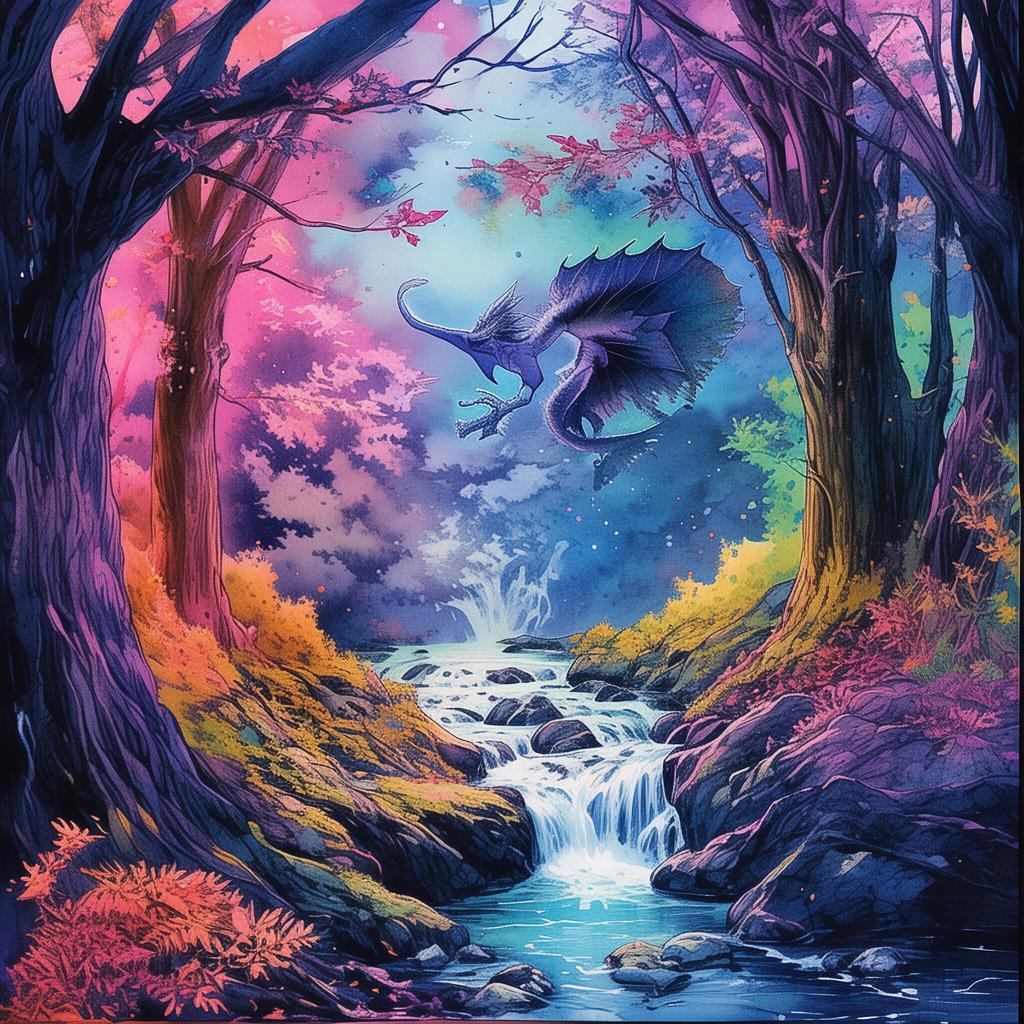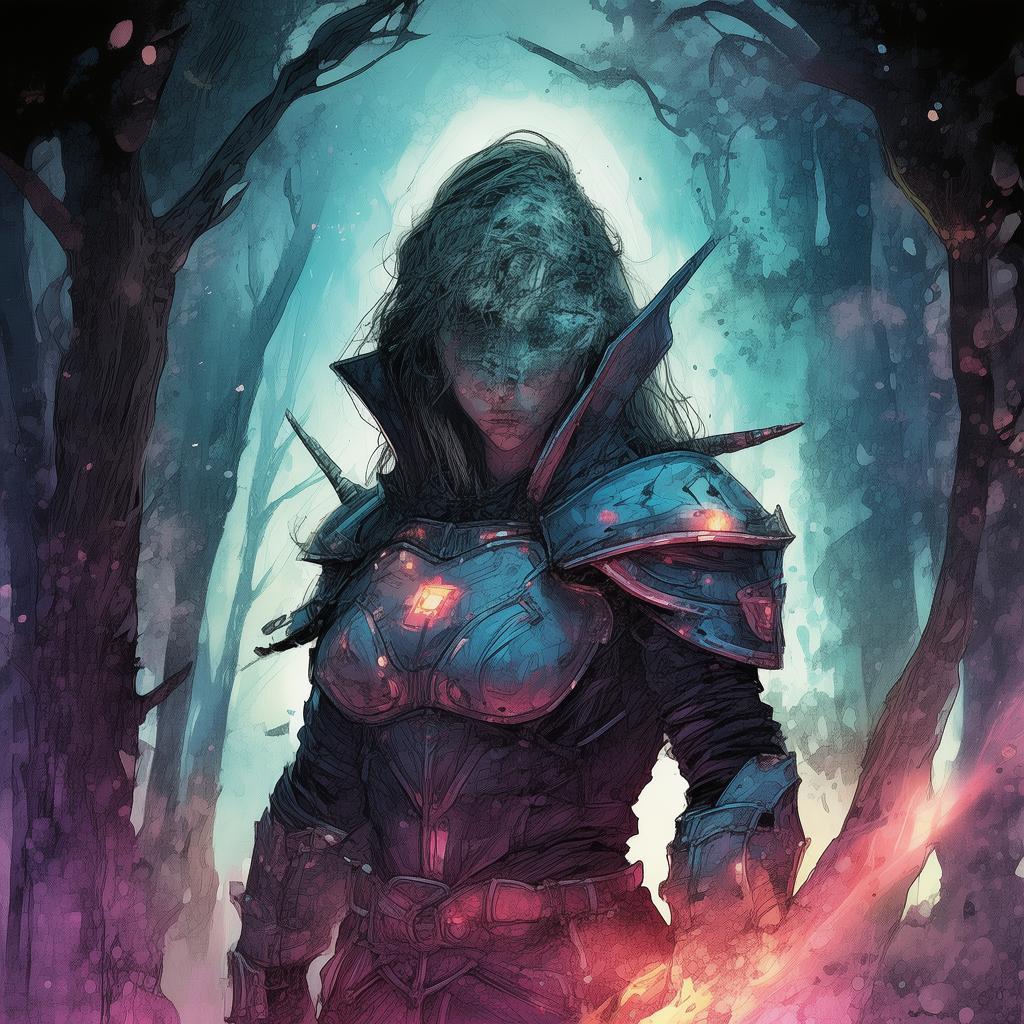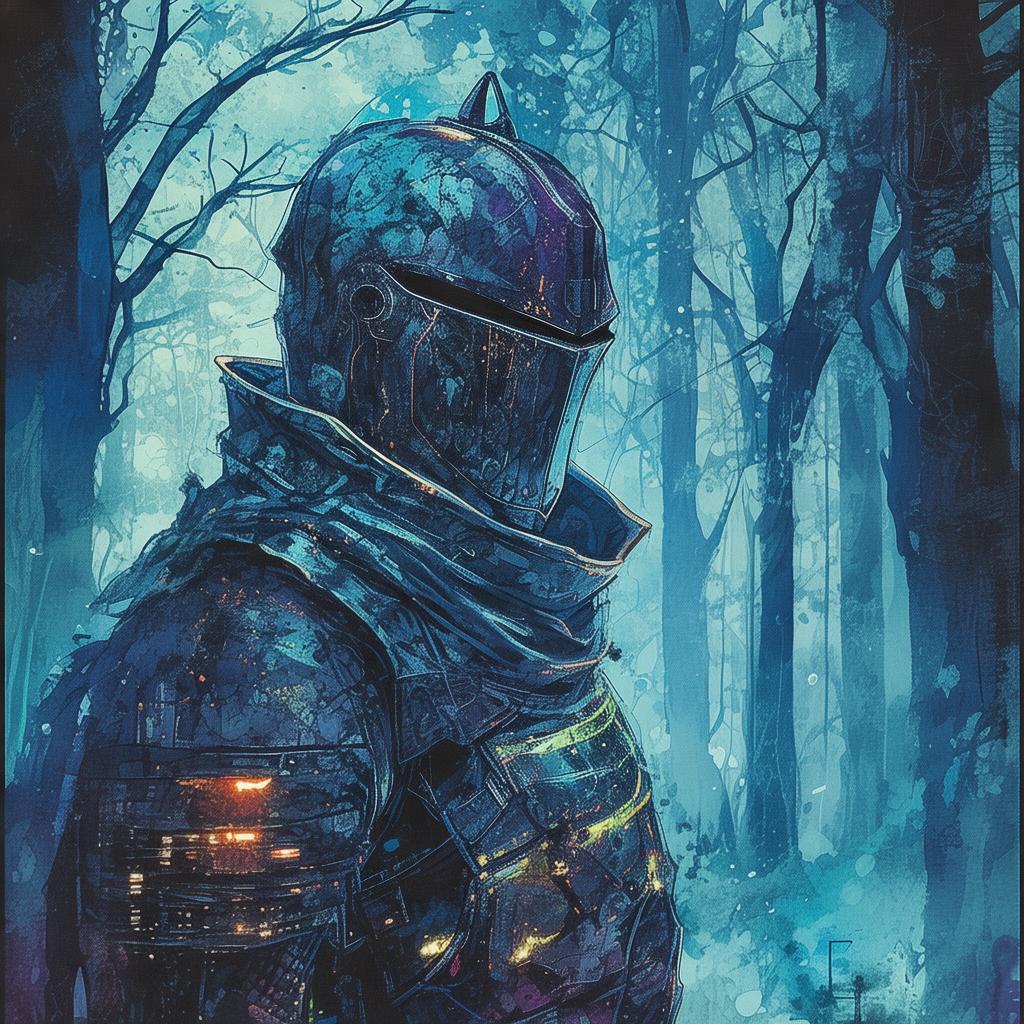The Enigma of the Zen Abacus: A Monk's Last Meditation
In the tranquil halls of the ancient Zen temple of Ch'an, nestled deep within the misty mountains of the Eastern Empire, there lived a monk known as Master Jing. His life was dedicated to the pursuit of enlightenment, and his presence was imbued with an aura of serene wisdom. Among the multitude of sacred texts and relics, there was one object that Master Jing held in particular reverence: a Zen abacus, said to be imbued with the essence of the universe and capable of revealing the deepest truths of the mind.
The legend of the Zen abacus had been passed down through generations, each monk claiming that it held the power to reveal hidden truths and guide them toward enlightenment. But none had ever truly discovered the abacus's secret, and it remained a subject of much speculation and awe among the temple's inhabitants.
As the years passed, Master Jing's reputation for wisdom grew, and many sought his guidance. Yet, there remained a void in his heart, a whisper of a secret that he had yet to uncover. It was a secret that, if revealed, might change everything he thought he knew about himself, his temple, and the world beyond.
One crisp autumn morning, as the sun began to cast a golden glow through the temple windows, Master Jing found himself sitting in his small cell, the abacus in his hands. The cell was filled with the soft rustling of leaves, and the only other sound was the steady, rhythmic clacking of the abacus as Master Jing worked through a meditation exercise.
Suddenly, the abacus's beads began to move of their own accord, cascading down as if touched by an unseen hand. Master Jing's eyes widened in astonishment. He had meditated with the abacus countless times before, but never had the beads danced in such a manner. He knew that this was no ordinary occurrence; this was a sign, a portent.
The monk's heart raced with anticipation as he watched the beads move, each one representing a piece of the enigma that had eluded him for so long. He knew that this was the moment of truth, the moment when he would either achieve enlightenment or fall into the depths of despair.
As the beads reached their final resting place, Master Jing's mind was filled with visions of his past. He saw his mother's face, the one who had given him life and taught him the first lessons of compassion and kindness. He saw the temple, the place where he had found solace and guidance. And then, in a burst of clarity, he saw himself as a child, sitting by his father's bedside, the man who had raised him but whose eyes held a shadow of a truth unspoken.
It was then that Master Jing understood the enigma of the Zen abacus. It was not a mere object of meditation; it was a vessel, a key that held the secrets of his own life. The abacus's movement was a reflection of his innermost desires and fears, and in that moment of truth, he had finally faced them.
With a newfound sense of purpose, Master Jing resolved to uncover the truth of his father's life. He would journey beyond the temple walls, seeking answers that would not only unravel the mystery of his lineage but also bring him closer to the enlightenment he so deeply yearned for.
The journey was fraught with peril and uncertainty. Master Jing encountered many who sought to deter him, but his resolve never wavered. He sought the guidance of sages, the wisdom of the common folk, and even the counsel of those who had known his father in his youth.
As Master Jing's journey unfolded, the pieces of the puzzle began to fall into place. He discovered that his father had been a man of many secrets, a warrior who had fought valiantly in a war that had torn the empire apart. But it was not the battles he had fought that held the key to Master Jing's truth; it was the love he had hidden behind a mask of duty and honor.
In a poignant revelation, Master Jing learned that his father had loved his mother deeply, but their union had been forbidden by the court. The pain of their separation had shaped Master Jing's own life, driving him to seek out his place in the world and the wisdom he believed would fill the void left by his parents' absence.
As the final piece of the puzzle clicked into place, Master Jing found himself standing before his father's tomb, the truth of his lineage laid bare. He realized that the true enemy he had been fighting was not an external foe, but the fear of his own origins and the shadow it cast over his life.

In a moment of profound clarity, Master Jing forgave his father, not for his secrets, but for the love that had never faltered. He understood that his journey had been not just about uncovering his family's past but about embracing his own identity and the lessons he had learned along the way.
Returning to the temple, Master Jing was greeted with a mix of awe and respect by his fellow monks. They had seen his transformation, and though they did not understand the depth of his journey, they could sense the newfound peace that radiated from him.
The monk Master Jing then embarked on a new phase of his life. He shared the lessons he had learned, the wisdom that the Zen abacus had imparted to him. He became a teacher, a guide for those who sought to understand the complexities of the mind and the world.
The legend of the Zen abacus grew with Master Jing's teachings, and the temple became a place of not just spiritual refuge but also of profound understanding. The abacus, once a mere object of reverence, became a symbol of the journey toward enlightenment and the power of facing one's truth.
And so, Master Jing's final meditation, the one with the enigmatic Zen abacus, became the tale that would be told for generations to come, a testament to the power of truth, love, and the relentless pursuit of wisdom.
✨ Original Statement ✨
All articles published on this website (including but not limited to text, images, videos, and other content) are original or authorized for reposting and are protected by relevant laws. Without the explicit written permission of this website, no individual or organization may copy, modify, repost, or use the content for commercial purposes.
If you need to quote or cooperate, please contact this site for authorization. We reserve the right to pursue legal responsibility for any unauthorized use.
Hereby declared.









